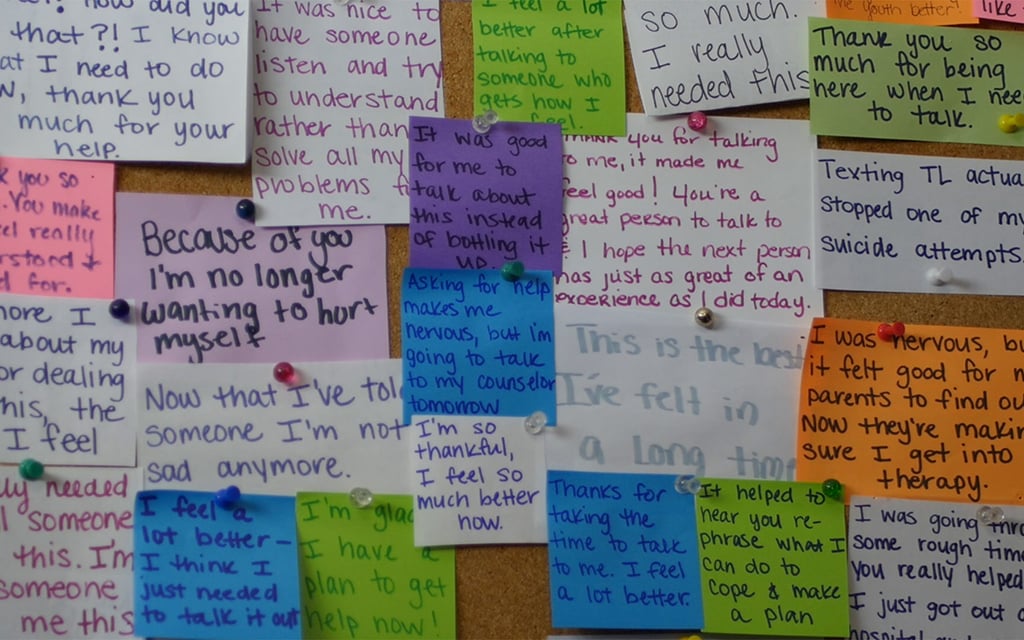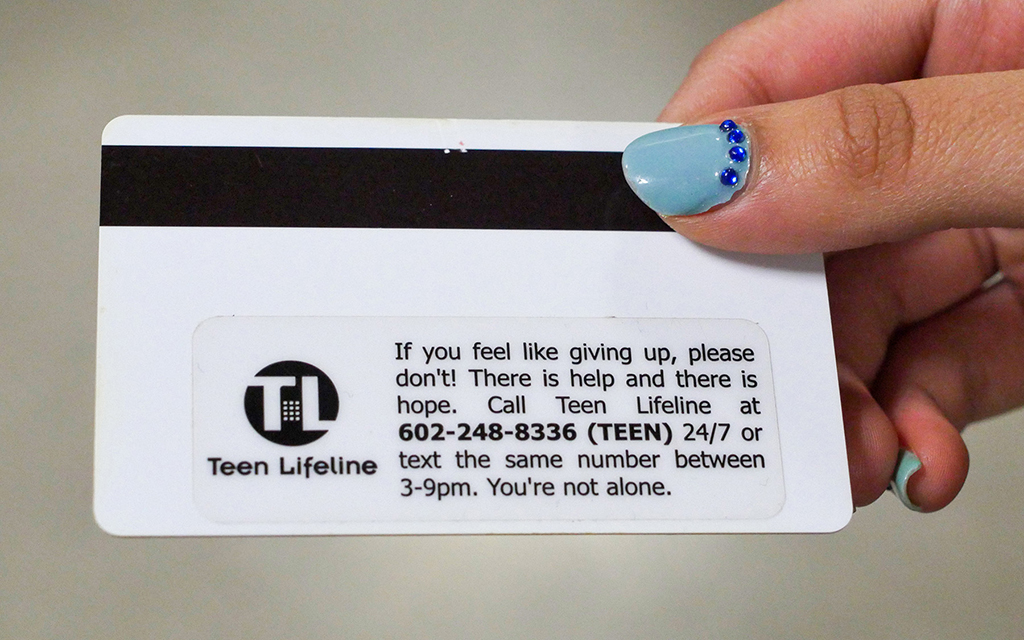
Teen Lifeline counselors receive messages from teenagers who have called to express their gratitude. The organization keeps the messages and hangs them in their hotline room. (Photo courtesy of Teen Lifeline)
PHOENIX – The city of Phoenix has been highlighting teen safety in romantic relationships for February’s Teen Dating Violence Awareness Month, providing outreach programs to help tackle the complex issue and using marketing materials to increase awareness.
Melissa Jimenez is a victim advocate supervisor at the city’s Family Advocacy Center, which provides services to victims of violent crimes. Jimenez said that raising awareness is just a small part of what the city is doing.
“We and other community agencies use this month to provide awareness to the community regarding dating violence,” she said. “What the city does specifically is we will go out to local high schools in the Valley and we put on workshops, we put on classes about healthy and unhealthy relationships.”
Jimenez also said that the city works closely with numerous organizations that have similar goals in mind – one of those is Teen Lifeline.
Teen Lifeline is a suicide prevention hotline geared toward helping teens throughout Arizona. It connects teenagers in need with other teenagers who have been trained to answer calls regarding many issues, including dating violence.
Nikki Kontz is a clinical director for Teen Lifeline, and she emphasized the importance of having trained teenagers answer the call instead of adults.
“I think when it comes to dating violence, it’s important to recognize that a lot of times we as adults don’t see those things right away. Because it’s another teen, they are able to connect directly in terms of just where they are in life,” Kontz said.
One of the former teen counselors for Teen Lifeline is 21-year old Dani. Cronkite News is not using her last name due to the organization’s policy.
Dani is now a college peer counselor with the organization and said she has taken countless calls from struggling teens. When she was a teen herself answering calls, she was able to connect with them in a unique way.
“Being a teenager we’re more there to listen but also for the caller to know that we can relate to them in a way that an adult can’t, and we understand them in a different way,” she said.

Student school ID cards in Arizona list Teen Lifeline’s phone number. The number is reachable 24/7. (Photo courtesy of Teen Lifeline)
Other efforts to tackle teen dating violence
The Centers for Disease Control and Prevention says that teen dating violence is common. A 2019 survey indicated one in 12 U.S. high school students who reported dating during the 12 months before the survey said they experienced physical dating violence, and one in 12 experienced sexual dating violence. Girls and teens who are LGBTQ or unsure of their gender identity are at higher risk, the survey found.
That makes government and nonprofit programs all the more important.
In the Valley, Avery’s House is a residential treatment program for teens struggling with mental health, substance abuse and troubled home lives. The program is part of a larger company called Modern Recovery Network, which includes outpatient services, small group sessions and recovery coaches.
When it comes to teens who are experiencing dating violence, Avery’s House is tailored to the needs of each client, according to community relations director Lena Moses.
“If it’s something that we are aware of, either in our pre-screen or in our assessment, then we absolutely take a look at that trauma and incorporate healing from that within our treatment plan,” Moses said.
When it comes to potential areas of improvement as a society, Moses said being “aware of the red flags” is critical to stopping these issues before they begin.
“I think we can probably do more as a society in terms of prevention. Because a lot of the time, it’s already happened,” she said of the trauma that Avery’s House patients have.
If you or someone you know is struggling with thoughts of suicide, the 988 Suicide & Crisis Lifeline is available all hours at 988 or via online chat. Teen Lifeline phone support is available all hours via 602-248-TEEN (8336). Text support is available weekdays 12-9 p.m. and weekends 3-9 p.m. with peer counseling available 3-9 p.m. daily.


